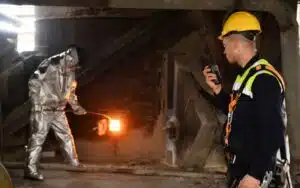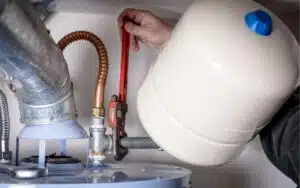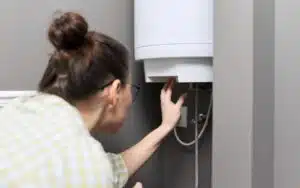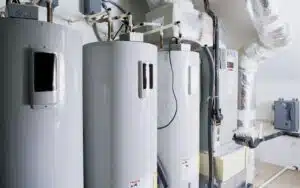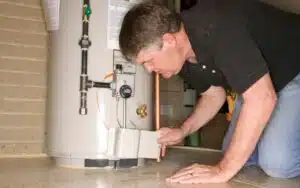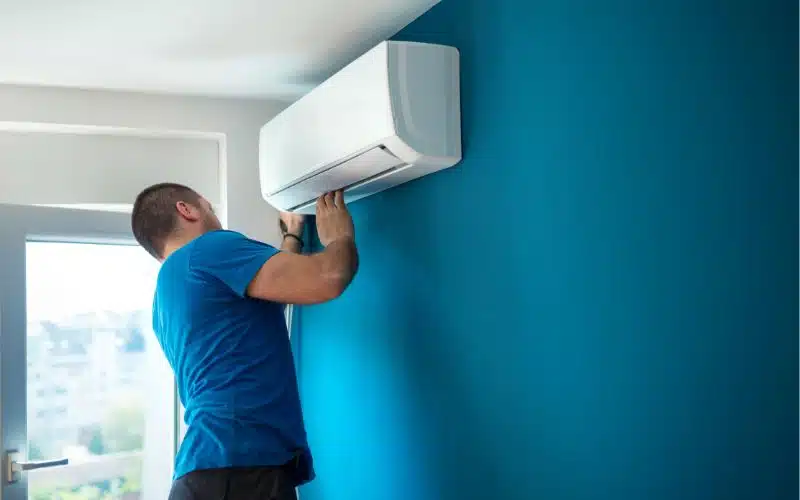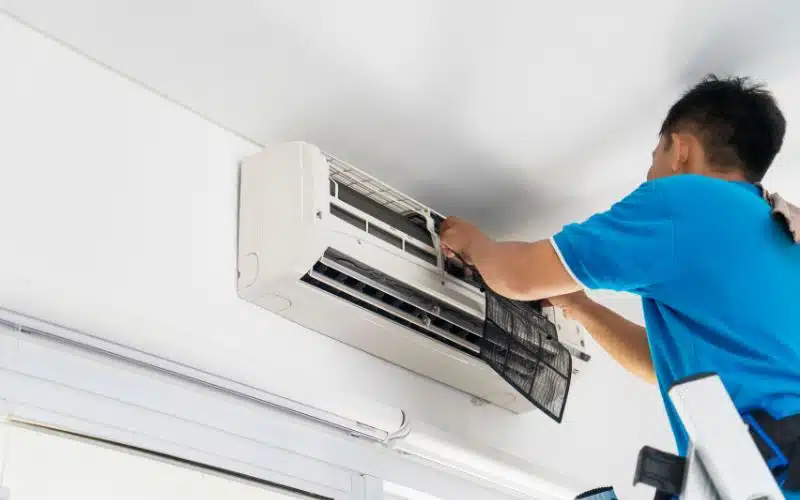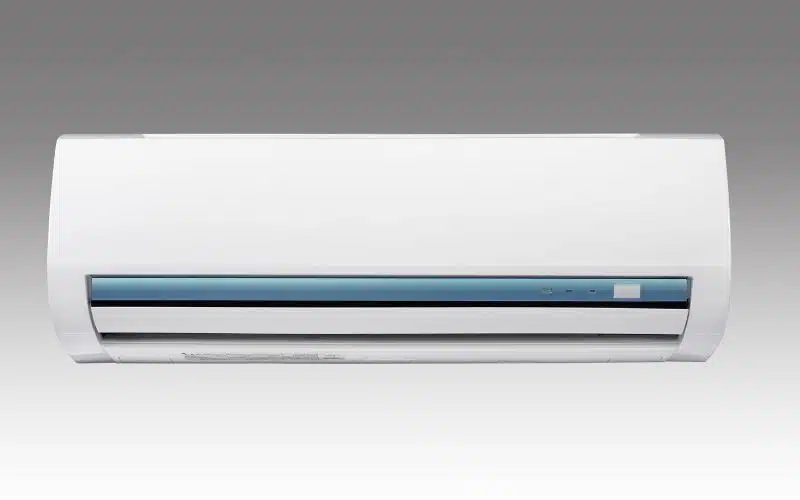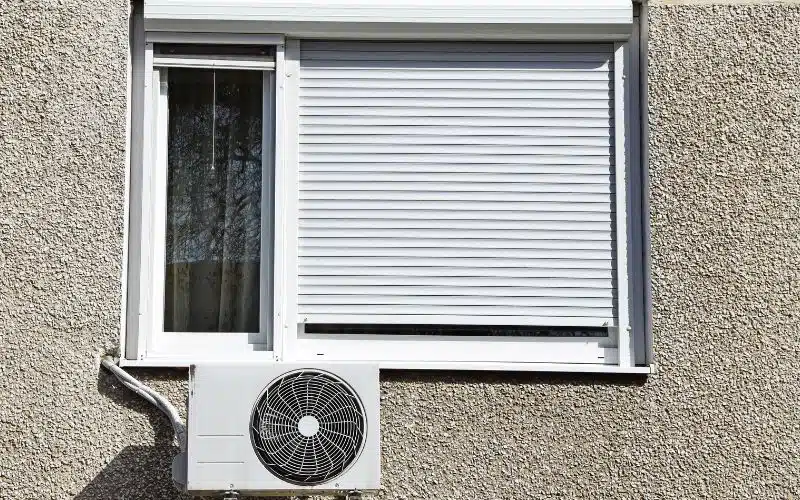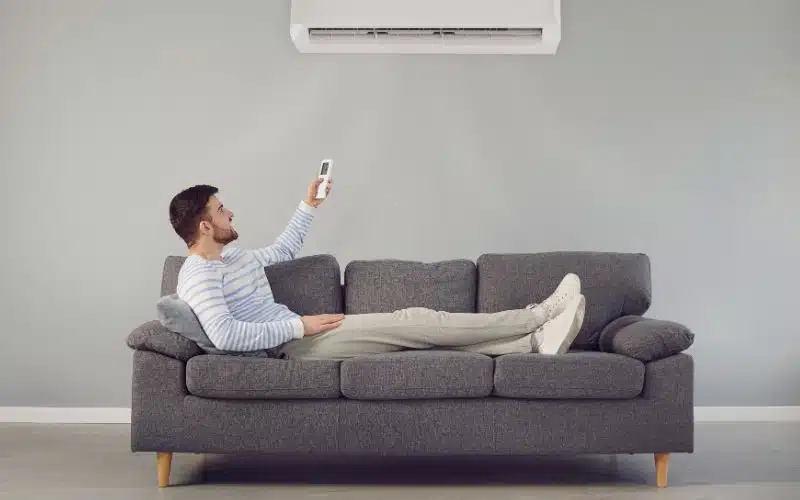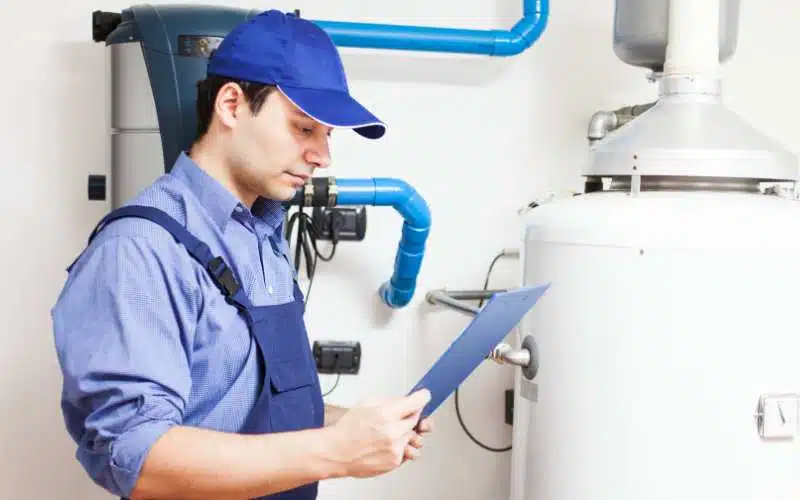It’s only proper to get an air conditioning unit that would give you the service you need. Your quest for an air conditioner has to be guided by specifics.
You usually have to consider the space you want to serve, then get an air conditioner with a capacity that fits. Skipping that bit of detail can be very costly.
Like fans, air conditioners also come in different sizes. The sizes determine their capacity and how much space they can serve effectively. An AC unit may be too big for a space or too small to take its cooling load. Thus, air conditioners can either be oversized or undersized.
What Happens If AC Is Oversized?
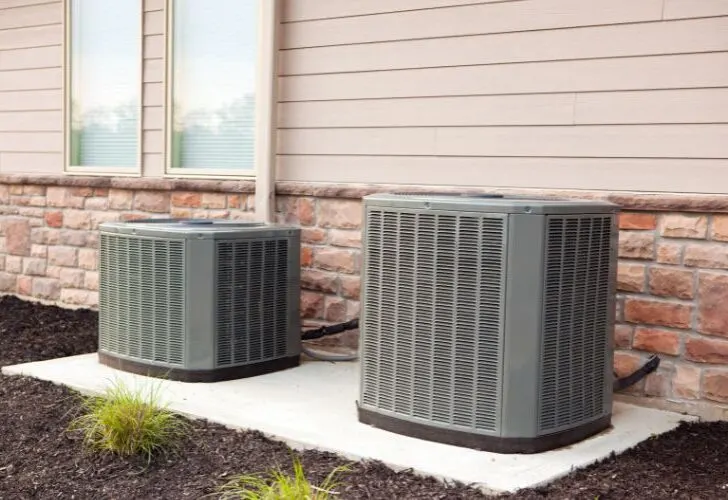
An oversized air conditioner is simply a high-capacity AC unit in a small space. That is generally a bad idea! It may sound great initially that the AC capacity exceeds the room size.
Like fans, a large AC should provide the best service to any space it serves. But that’s not the case with air conditioners.
So having an undersized AC is even better than an oversized one. Quite a few things can go wrong when you get an oversized air conditioner.
There’s hardly any upside to it. Come along as we run through the cons of an oversized AC unit.
#1. AC Short Cycles
When you match AC capacities to room spaces, you get 7 to 10 minutes cycles. That’s how long it takes for the AC unit to remove excess humidity from the air effectively.
The cooling cycle shouldn’t be longer than that range or shorter. Anything else is bad news. A short cooling cycle means you’d still have humidity in the air.
Usually, the AC shuts off when it hits its cooling load. With an oversized AC, that happens in less than 7 to 10 minutes. Thus, you’ll find excess humidity floating around in your room space.
#2. Hot Spots Across Your Home or Service Space
You’ll get an uneven distribution of cool air across your home when the AC short cycles. So some parts of your home will be in prime condition.
But other parts will feel hot and humid! That’s because the cool air from the AC doesn’t complete an entire cycle across the rooms before it shuts off.
The AC should run long enough to ensure the air remains cool as it flows across your home.
So, such a scenario makes having an AC unit ineffective. But it should serve a whole area, not some parts of the whole area.
#3. High Chances of Mold Growth
An air conditioner should cool and dehumidify! When it fails in the second regard, you risk mold growth. That’s a result of excess humidity in a room.
The AC’s failure to dehumidify correctly isn’t much of a problem in regions with low humidity.
The oversized AC may be able to take out most of the excess humidity during its cycles. But in regions with high humidity, you can count on having mold as August visitors.
#4. Higher Energy Bills
The high capacity of an oversized AC means that it needs more power to run cycles. Sadly, that doesn’t come free.
Also, using an oversized AC doesn’t improve its efficiency. If for anything, the efficiency takes a huge dip. So, sadly, with oversized ACs, you get to pay so much for cooling that you don’t enjoy.
#5. Short Air Conditioner Lifespan
Short cooling cycles due to an oversized AC will make it run more time than usual. But there should be sufficient space between cooling cycles and when the AC is off.
That’s because the AC will overheat as it runs continuously. Heat is a mortal enemy to all gadgets and appliances.
The same goes for AC units. The heat from successive cooling cycles will cause its parts to wear out. Thus, maintenance will be frequent, and eventually, you’ll have to get a new unit.
Is It Bad to Have an Undersized AC Unit?
It’s wrong to have an undersized AC unit as it’s wrong to have an oversized one. Both units wreak havoc on a home’s HVAC system.
They waste resources big time! First, with energy, they take up more energy than usual.
Then, you have to pump lots of money into repairs and maintenance. In the end, you get zero value for money.
You’ll move on from your oversized or undersized AC before you know it! As with an oversized AC unit, an undersized AC only attracts trouble.
Below is a list of issues you sign up for when you choose an undersized AC unit.
#1. Long Cooling Cycles
Since the AC unit is undersized, it’ll struggle to cool the room to the set temperature. It’ll run longer than the average cooling cycle to cool the air.
It’s just like a weightlifter going over the weight limit. The pickup might work, but shaky knees and arms follow.
Oh, let’s not forget the popping eyes and crimson face. Alas! Everything comes crashing down.
The same goes for an undersized AC unit. Trying to serve an ample space puts too much load on its parts. They may keep up for some time. But that chain is very brief and ends in disaster.
#2. Rapid Wear and Tear of the Air Conditioner Parts
Due to the overload, the AC unit does more work than it should. Thus, the parts exceed their natural limits and wear out faster.
So, you’ll find yourself often servicing or replacing parts with an undersized AC. The wear and tear of parts also translate to a shorter life span.
The average life span of every AC unit links to its cycles. So, the long cooling cycles an undersized AC unit runs seem to drain its life force.
#3. Inefficient Cooling Cycles
An undersized AC unit means your home is underserved. It can’t cool the air in the whole house. The undersized AC can only do so much.
So, you’ll find that only some parts of your home have cool air. That’s usually the areas close to the AC duct. Other parts of your home will have higher temperatures.
#4. Increased Energy Bills
The long cooling cycles would mean an undersized AC unit saps more energy. That’s similar to the case with oversized AC units. They both put nasty dents on your energy bill for no good reason.
#5. Excess Humidity
The undersized AC unit will struggle to remove excess humidity from the air. Most of its work will focus on cooling the air.
But it doesn’t get to complete that task. So, you’ll find that the air in your home remains humid.
Another thing to consider is this; the undersized AC unit will overheat when running. That will also aid the buildup of moisture in the room. That’s a thriving condition for mold.
How to know what size of AC is suitable?
The usual factor people consider to get an AC is room size. But you have to consider more factors than your room size for that. Room size is essential, but it’s not the only determining factor.
Climate, insulation, and the number/position of windows are other factors to consider.
#1. Insulation
A space with insulation needs a slightly smaller AC unit than the same uninsulated space.
Thermal efficiency in an insulated space helps to keep the temperature in check through various seasons.
But a space without insulation lacks that vital feature. So, it’ll get scorching in summer and maybe too cold in winter. That presents the AC unit with more workload trying to regulate the temperature.
Insulation in a room helps to ease the load on your AC unit. But, more importantly, it helps to cut down on energy spending.
#2. Number/Position of Windows
A space with many windows usually has better ventilation. The position of the windows determines the quality of airflow.
That also determines if the space will pack heat during summer or not. Or get too chilly during winter.
Windows facing North tend to perform better during summer and winter than those facing South.
#3. Climate
It matters if you are in a region with extreme or average weather conditions. Regions that see harsh weather will need slightly bigger AC units.
It helps to consider the cold and hot extremes of weather. If you find yourself in such regions, adding 0.5 tons to your AC size goes a long way.
Below is an AC sizing chart based on climate zone to help you choose an AC unit.
Conclusion
It would help if you didn’t overlook choosing the right AC size for your home or office. That determines if the AC unit will work efficiently or not.
Consider your room size, insulation, and climate before you choose an AC size. You can also reach out to a professional if you get lost.
- Rheem Gladiator Water Heater Service Needed Light On!
- This is How To Tell If A Two-Stage Furnace is Working!
- Does Rheem Water Heater Have A Battery? (Read This First)
- Rheem Vs Joven Water Heater (In-Depth Comparison)
- Is The Rheem Water Heater Warranty Prorated? (Explained)
- Is Rheem Water Heater Warranty Transferable?

